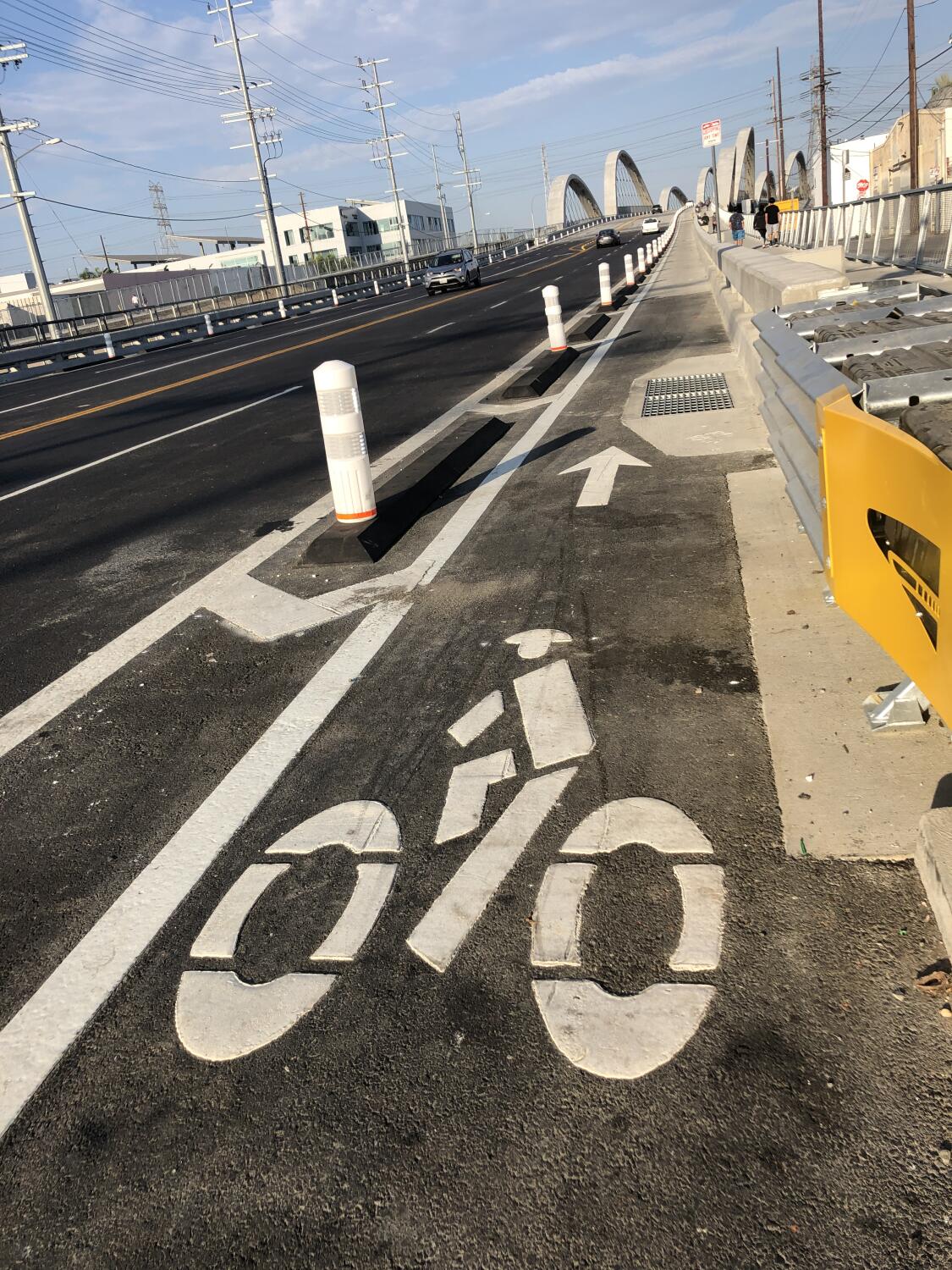Commentary: I rode 23 miles to work on an e-bike and saw the transportation promised land

[ad_1]

Now in my fifth decade of moving around Los Angeles, I’ve accepted an immutable truth about living here: There is no shortcut to LAX.
Since mid-2018, the Los Angeles Times’ newsroom has been in a building just south of the airport in El Segundo. Flying isn’t a regular part of my life, but working at The Times is, so if anyone knows a quicker way to travel from east of downtown L.A. (I live in Alhambra) to Los Angeles International Airport in rush-hour traffic, it should be me.
My solution had been just to deal with it: Sit in traffic or on transit — often a mix of both — and hope you can get there in less than two hours.
That was until I bought an electric bike and just this week started using it to ride the 46-mile round trip between home and work.
On Tuesday morning, by which time L.A.’s rush-hour traffic had fully rebounded from its holiday break, getting from Alhambra to El Segundo by e-bike took 90 minutes. The electric motor flattened hills and helped with attaining traffic speed sooner.
The commute home lasted 80 minutes. That’s 46 rush-hour miles in less than three hours — typically what it takes in a car, and less than the same journey on Metro rail.
At long last, I have seen the transportation promised land: a future where electric bikes can be the answer for commuters in L.A. who want a safe, environmentally sound alternative to driving a car.
I say “can” because the bike infrastructure isn’t there yet. Having logged thousands of miles across the region on two wheels since the mid-2000s, I’ve developed a keen sense of self-protection and street awareness. But bike commuting in L.A. is still too dangerous for people new to cycling.
There is more infrastructure in place compared with a decade ago. The city’s first fully protected bike lane of substantial length is nearing completion in downtown L.A., where some streets have received two-way bike lanes with dedicated traffic signals that would have been unimaginable when I started cycling in L.A. in the mid-2000s. Other municipalities are making progress on their own.
Yet even for experienced bikers, rider safety in Los Angeles is backsliding dangerously.
Big SUVs and trucks, with front ends resembling battering rams, are outselling all other vehicle types and killing pedestrians and cyclists with greater ease than ever before. Even many of the “protected” bike lanes popping up around Los Angeles, which separate cyclists from vehicles with flimsy plastic bollards that collapse if hit by a car, offer barely any protection.
To L.A.’s everlasting shame, traffic deaths have ballooned to crisis proportions since then-Mayor Eric Garcetti announced the goal of eliminating them completely by adopting Vision Zero in 2015. That year, according to the group Streets Are for Everyone, 203 people died in L.A. traffic; in 2022, 312 were killed.
All this has created a state of panic among those who defend the rights of cyclists and pedestrians, a group that sadly does not include the majority of car-bound Angelenos and their political leaders. Ted Rogers, a hero to cyclists who has been speaking up for our safety since 2008 at his site BikinginLA.com, has devoted much of his energy lately to chronicling one heartbreaking traffic death after another in Southern California.
I don’t recommend that commuters suddenly get on an e-bike and put their safety in the hands of dangerously entitled rush-hour drivers. Car dependence holds us back. For bike commuting to become possible for more people, we need a culture shift aided by better leadership.
That means officials who will build safer roads, even if it makes drivers mad at them. It means fixing uneven pavement in the bike lane as carefully as the rest of the road. It means having intersection sensors that detect cyclists so we don’t have to shuffle over to the curb and push the pedestrian crosswalk button to get a green light. It means higher taxes and fees on heavy SUVs and trucks that kill. It means resisting panic over e-bikes and establishing reasonable rules, while acknowledging that the spike in traffic deaths is caused by cars. And it means Angelenos becoming drivers who value human life when they’re operating a car. (Side benefit of commuting by bike: It’s made me a better driver.)
It will take all of this for people in L.A. to feel safe enough to get on an e-bike to go across town — and someday, maybe even to ride to LAX.
[ad_2]